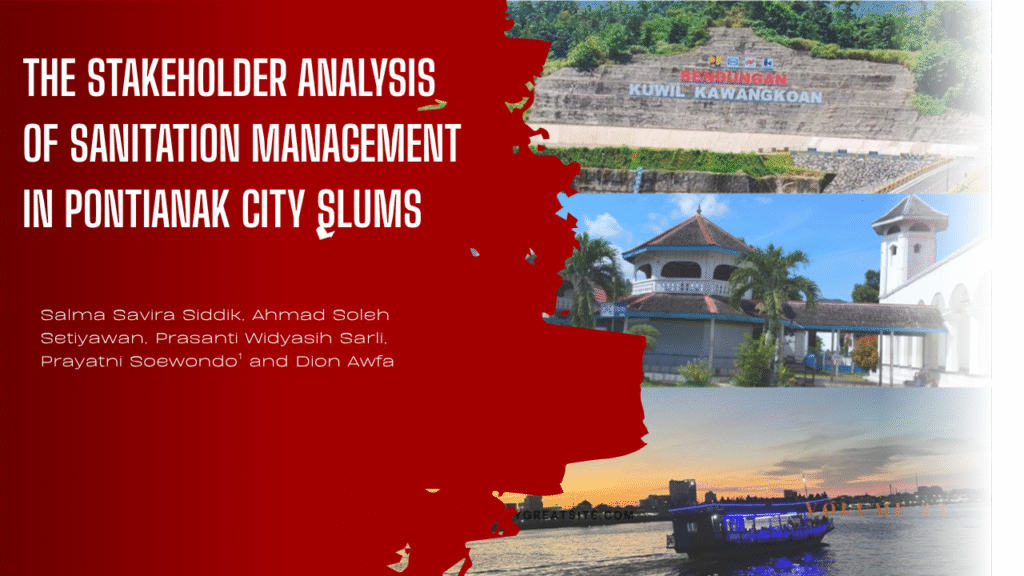Abstrak
The development of slum settlements is increasing in Indonesia, one of which is in Pontianak City where most of the slum settlements are on the banks of the Kapuas River. The sanitation conditions are poor and inadequate health services.
This study aims to identify stakeholders and their roles and classify stakeholders based on the power-interest matrix for sanitation management in Pontianak’s slum settlements. Data collection was carried out through Focus Group Discussions (FGD) and questionnaires to stakeholders from the government, private sector, civil society, and academics related to sanitation.
This research is important for stakeholders to handle sanitation problems in slum settlements. Stakeholders related to sanitation had various roles and different levels of involvement.
The stakeholder analysis successfully identified 47 stakeholders involved in sanitation management in Pontianak slums, classified as 15 subjects, 6 key players, 17 crowds, and 10 context setters.
The existence of these stakeholders can influence the handling of sanitation in slum settlements and requires collaboration among the stakeholders.


